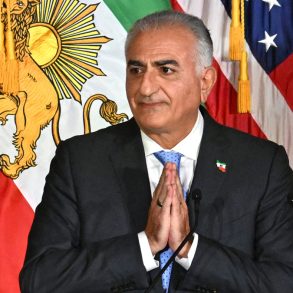The recent closure of Israel’s embassy in Ireland has sparked intense debate, highlighting European attitudes toward Israel and the broader Middle East. Former Deputy National Security Advisor KT McFarland offered a sharp critique of Europe’s policies and actions during a recent appearance on Newsmax, describing the situation as a clear indicator of growing tensions between Israel and European nations.
Ireland Crossed “Red Lines”
Israel’s Foreign Minister Gideon Sa’ar announced the decision to close the embassy, citing “extreme anti-Israel policies” and “antisemitic rhetoric” from the Irish government. According to Sa’ar, these actions, including Ireland’s recognition of a Palestinian state and its support for South Africa’s legal actions against Israel at the International Court of Justice (ICJ), constitute a delegitimization of the Jewish state. “Ireland has crossed every red line in its relations with Israel,” Sa’ar stated.
Sa’ar’s criticisms also included Ireland’s support for a genocide case against Israel in the ICJ. Ireland’s intervention called for a broader interpretation of what constitutes genocide, targeting Israel’s military actions in Gaza. These moves, Sa’ar argued, demonstrate “double standards” and a systematic effort to demonize Israel. He further emphasized that Israel would divert resources toward strengthening relationships with countries that demonstrate respect for its sovereignty and policies.
Irish leaders pushed back against these accusations. Prime Minister Simon Harris called the embassy closure “deeply regrettable” and firmly rejected claims that Ireland is antisemitic or anti-Israel. “Ireland is pro-peace, pro-human rights, and pro-international law,” Harris said, adding that Ireland remains committed to advocating for a two-state solution to the Israeli-Palestinian conflict. “Ireland will always speak up for human rights and international law,” Harris stated.
KT McFarland’s Criticism of Europe
KT McFarland did not mince words when discussing the broader European context during her Newsmax interview. She described Europe as historically antisemitic and said that many nations have grown “even more anti-Israel” following the October 7, 2023, Hamas attacks on Israel. “The European countries have always been antisemitic, anti-Israel, and especially in recent months and years,” she remarked. McFarland argued that Israel’s decision to close its embassy in Dublin serves as a warning to other European countries that may follow similar paths.
Her criticism extended to Europe’s handling of immigration policies. McFarland described the influx of illegal immigrants from the Middle East as a “huge mistake” that created cultural dissonance across the continent. “They didn’t make [immigrants] mesh with their culture,” she said. “They didn’t encourage people to adopt the culture of the countries they went to, whether it was the Netherlands, whether it was in Germany, whether it was in Britain. They said, ‘OK, go do your own thing. We’ll have multiculturalism.’ But it failed spectacularly.”
Immigration and Multiculturalism’s Challenges
McFarland underscored that Europe’s embrace of multiculturalism has left many nations struggling to address the long-term effects of these policies. “European leaders now don’t know what to do,” she noted. She mentioned recent hopes among European leaders that the fall of Syrian President Bashar Assad might encourage Syrian refugees to return to their homeland. However, she observed, “so far, there does not seem to be a big movement of Syrians wanting to return to Syria.”
McFarland also commented on the uncertain future of Syria’s government after Assad’s ouster. “The government is not unified,” she said. “Most of them are Muslim, but different varieties of Muslim. There are some Christian groups, there are some Kurdish groups, and so far they’ve not fought each other. But that doesn’t mean they won’t.” She emphasized that former President Donald Trump’s stance—calling for the U.S. to stay out of Syrian conflicts—remains relevant. “We do not belong in the middle of what could be a protracted civil war,” she said. “The answer is we don’t know.”
Broader Implications for Israel and Europe
McFarland’s commentary reflects the broader challenges facing Europe as it navigates complex issues of immigration, integration, and international diplomacy. Her sharp critique suggests that European nations have alienated Israel through policies that fail to acknowledge Israel’s security needs and sovereignty. Meanwhile, Israel’s decision to close its Dublin embassy highlights a strategic shift in its foreign policy, prioritizing alliances with nations that align more closely with its values and goals.
Sa’ar echoed this sentiment, stating, “Israel will invest its resources in advancing bilateral relations with countries worldwide according to priorities that also take into account the attitudes and actions of these states toward Israel.” In the meantime, Ireland and other European nations remain in a precarious position, balancing their support for Palestinian causes with maintaining diplomatic relations with Israel.
Israel’s embassy closure in Ireland signals a significant moment in its diplomatic strategy. For KT McFarland, the move is not just a response to Ireland but a broader lesson for Europe. Whether this shift will lead to a reevaluation of European policies or deepen the divide between Israel and its critics remains to be seen.








